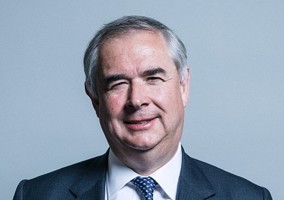There are fewer charities per head in deprived areas than elsewhere, which could hamper efforts to build stronger communities, the Conservative Party conference heard yesterday.
Dan Corry, chief executive of the charity sector think tank New Philanthropy Capital, was speaking at a fringe event about town and city planning.
He told the audience that when it comes to building successful communities with high levels of trust in those around them, “one thing that we do know that works is a strong civil society”.
But he added that the data shows that the more deprived an area, the fewer charities it has. With the caveat that the only data available is for registered charities, which doesn’t cover smaller scale community groups, Corry said that in well-off areas there are 2.3 charities per thousand people.
In contrast there are 1.2 per thousand people in more deprived areas, with some places such as Blackpool having just 0.6 charities per thousand people.
‘Something is going wrong’
Corry said this was partly down to cuts in local authorities' funding, which have had a knock-on effect on the smaller charities which relied on it.
“So there’s something that is going wrong there,” he said. “I think the smaller charities sector has had real problems. A lot of their funding has always come through local authorities, grants and so forth. Local authorities have been up against it in the recent decade and this has fed through to the charity sector.”
He urged councils to increase grant funding to voluntary organisations if they do get more money in the future.
Corry also urged the government to make sure that charities were involved in the design of programmes like the Stronger Towns Fund and the Shared Prosperity Fund.
He highlighted concerns from the sector about plans for Local Enterprise Partnerships to deliver the Shared Prosperity Fund, because “one thing they don’t do is represent civil society”.
‘We must act’
Corry added that while government needs to act, so too do independent funders and charitable foundations.
Research suggests that although proportionally foundations “tend to put slightly more money into deprived areas”, the level of funding is still below where it should be.
“They would say that is because they don’t get enough applications,” he said, but countered: “If you’re not getting applications from areas you think you should, then go in there.”
Government: ‘We expect civil society to be at the heart of town plans’
Jake Berry, the northern powerhouse minister at the Department for Communities, Housing and Local Government, was also part of the panel. He said that when towns are submitting bids for funding, he expects that civil society should be a key part of the plan.
He described a “step change” in the government’s approach aimed at “empowering local communities to come up with a plan”.
“Giving people power to come up with a long term plan is key to restoring growth and driving out inequalities. Of course in the Stronger Towns Fund and the High Street Fund, civil society, people and local authorities and government have to work together on that plan.”
He explained that it “has to be locally driven, and civil society and all parts of our communities will need to be represented and part of that story.”
|
Related articles












